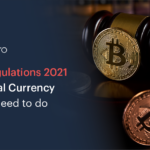The Future of Cryptocurrency: Trends to Watch in 2025 – The Future of Cryptocurrency Trends to Watch in 2025 takes center stage as we delve into the rapidly evolving landscape of digital currencies. With the increasing integration of cryptocurrencies into mainstream finance and the emergence of new technologies, this year promises to be pivotal for both investors and enthusiasts alike. As we explore the trends that are shaping the future of cryptocurrency, we’ll uncover insights into market dynamics, regulatory developments, and innovative practices that are likely to impact the way we perceive and utilize digital assets.
In the ever-evolving world of technology, few developments have had as profound an impact as the internet. From its inception as a simple network for academic communication, it has transformed into a vast digital landscape that connects billions of people across the globe. Today, we delve into the myriad ways in which the internet has revolutionized our lives, reshaped industries, and fostered a new era of communication.One of the most significant changes brought about by the internet is the way we communicate.
Gone are the days when sending a letter took days, or even weeks. Now, with just a few clicks, we can send an email, instant message, or video call someone on the other side of the world. This immediacy has not only made personal communication easier but has also transformed business interactions. Companies can now engage with clients and partners in real-time, fostering collaboration and efficiency like never before.Moreover, social media platforms have redefined how we connect with others.
Networks such as Facebook, Twitter, and Instagram allow users to share their lives, opinions, and creativity with a global audience. This has not only changed personal relationships but has also given rise to new forms of marketing and brand engagement. Businesses can now reach their target audience directly, creating a more personalized experience that enhances customer loyalty.The internet has also democratized access to information.

With a wealth of knowledge available at our fingertips, anyone with an internet connection can learn about almost any topic imaginable. Online courses, educational videos, and e-books have made learning more accessible than ever. This shift has empowered individuals to pursue their interests and develop new skills, often leading to career advancements and personal growth.In the realm of commerce, the internet has revolutionized the way we shop.
E-commerce platforms such as Amazon and eBay have changed consumer behavior, allowing people to purchase goods and services from the comfort of their homes. This convenience has prompted traditional retailers to adapt their business models, integrating online shopping options and enhancing their digital presence. As a result, consumers enjoy greater selection and competitive pricing, while businesses can reach a wider audience without the limitations of physical storefronts.However, with these advancements come challenges.
The internet has also facilitated the rise of misinformation, cyberbullying, and privacy concerns. The ease of sharing information can lead to the rapid spread of false narratives, which can have real-world consequences. Furthermore, as we increasingly conduct our lives online, the importance of data security has become paramount. Individuals and organizations must navigate these complexities to ensure a safe and responsible internet experience.Another compelling aspect of the internet’s influence is its role in fostering community.
Online platforms bring together individuals with shared interests, regardless of geographical boundaries. This virtual camaraderie has led to the formation of support groups, hobbyist communities, and even political movements. The ability to connect with like-minded individuals has proven invaluable, particularly for those in marginalized communities who may have felt isolated in their offline lives.The entertainment industry has also been significantly impacted by the internet.
Streaming services like Netflix and Spotify have transformed how we consume media. Gone are the days of waiting for a show to air on television or purchasing CDs. Now, we can access a vast library of content at any time, leading to a more individualized entertainment experience. This shift has not only changed consumer habits but has also forced creators to adapt their content to meet the demands of a digital audience.In addition to media consumption, the internet has reshaped how we work.
Remote work has become increasingly common, especially in light of recent global events that have necessitated social distancing. Many companies have embraced flexible work arrangements, allowing employees to operate from anywhere with an internet connection. This shift has prompted discussions about work-life balance, productivity, and the future of the workplace.Furthermore, the internet has given rise to a new wave of entrepreneurship.
Individuals can now start businesses with minimal initial investment, leveraging online platforms to reach a global market. From dropshipping to digital marketing agencies, the possibilities are virtually limitless. This entrepreneurial spirit has led to innovative products and services that cater to the evolving needs of consumers.As we look to the future, it is clear that the internet will continue to play a pivotal role in shaping our society.
Emerging technologies such as artificial intelligence, virtual reality, and the Internet of Things (IoT) promise to further enhance our digital experiences. However, with these advancements come ethical considerations that must be addressed. How do we ensure that technology serves humanity rather than the other way around? This question will likely guide discussions as we navigate the complexities of a digital future.In conclusion, the internet has fundamentally transformed our lives and will continue to do so for generations to come.
From communication to commerce, education to entertainment, its influence is pervasive and profound. As we embrace the opportunities it presents, it is essential to remain vigilant about the challenges it poses. By fostering a responsible and inclusive digital environment, we can harness the full potential of the internet while ensuring that it remains a force for good in our world.



